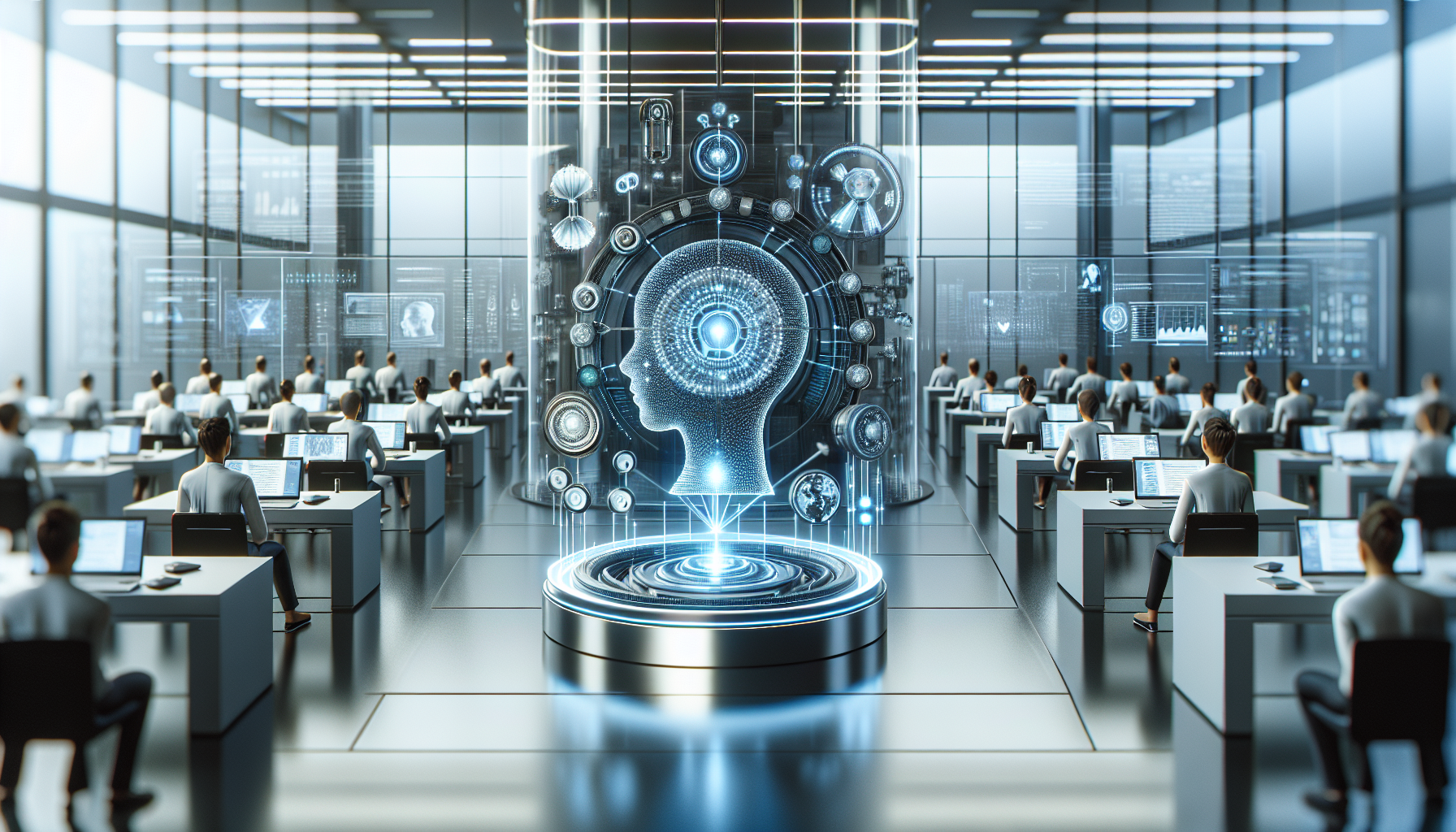
AI’s Remarkable Role in Revolutionizing Accessibility for People with Disabilities
April 15, 2025
Artificial intelligence has emerged as a beacon of hope and empowerment for people with disabilities, propelling forward a new era of accessibility. By harnessing the power of AI, innovators are opening doors—both metaphorically and literally—that were once considered unreachable. This transformative technology is not just optimizing accessibility tools; it’s reshaping how society conceptualizes inclusivity.
Imagine a world where a visually impaired individual can navigate urban landscapes with the same ease as someone with perfect sight. Thanks to AI, this is becoming a reality through smart glasses equipped with real-time object recognition and navigation capabilities. These devices interpret the surrounding environment and convert visual data into audio cues, offering the user a seamless and independent exploration experience. This is not a speculative possibility but an ongoing trend that is changing lives across the globe.
Meanwhile, speech recognition and natural language processing algorithms are breaking down communication barriers for those with speech impairments. Virtual assistants, fine-tuned through the vast capabilities of AI, are now adept at understanding varied speech patterns, accents, and even non-verbal cues. These advancements allow individuals to interact with technology and society in ways previously unimaginable, fostering a greater sense of autonomy and engagement.
One of the most inspiring stories comes from the realm of AI-powered prosthetics. These cutting-edge devices do more than replicate physical functions; they integrate machine learning to adapt to the user's unique movements and preferences. The result is a symbiotic relationship between human and machine, where the prosthetic becomes an extension of the person rather than just a tool. This trend is not only enhancing physical capabilities but also boosting confidence and independence.
AI’s role in accessibility extends into the digital world as well. For individuals with cognitive disabilities, AI-driven personalization is revolutionizing educational platforms. By analyzing a user's interaction patterns, these intelligent systems tailor educational content to suit individual learning paces and styles, making education more accessible and effective. This personalization ensures that learning becomes a more inclusive experience, recognizing and valuing the diversity in cognitive abilities.
Moreover, AI is playing a pivotal role in enhancing workplace accessibility. With remote work becoming increasingly prevalent, AI-driven platforms are ensuring that employees with disabilities can participate fully and equally. From automated transcription services that support individuals with hearing impairments to AI-powered tools that assist in organizing tasks for those with attention disorders, the workplace is becoming a more inclusive environment, where talent and ability are the primary focus.
The narrative of AI in accessibility is also enriched by its impact on social interactions. Social robots, equipped with AI, are providing companionship and support to individuals with autism, helping them to understand and engage in social settings. These robots are designed to recognize emotional cues and respond accordingly, offering a personalized and empathetic interaction that can enhance social skills and confidence.
Amidst these technological marvels, it’s essential to acknowledge the ethical considerations that accompany the integration of AI in accessibility. Ensuring data privacy, preventing bias in AI algorithms, and maintaining transparency in AI systems are crucial to safeguarding the interests of users. The commitment to ethical AI development is a trend that is gaining momentum, underscoring the importance of building trust and security in technology designed for inclusivity.
As AI continues to evolve, its potential to enhance accessibility for people with disabilities is boundless. Each innovation carries the promise of a world that is not only more accessible but also more equitable and compassionate. The conversation around AI and accessibility invites us to ponder a future where technology not only aids but empowers individuals, reshaping societal structures to be more inclusive.
This journey of AI in accessibility prompts an intriguing question: as we continue to integrate AI into our daily lives, how can we ensure that this technology remains a force for good, amplifying human potential and fostering a society that celebrates diversity in all its forms? As we reflect on this, the potential for AI to drive meaningful change remains an inspiring testament to human ingenuity and the unwavering spirit of innovation.


